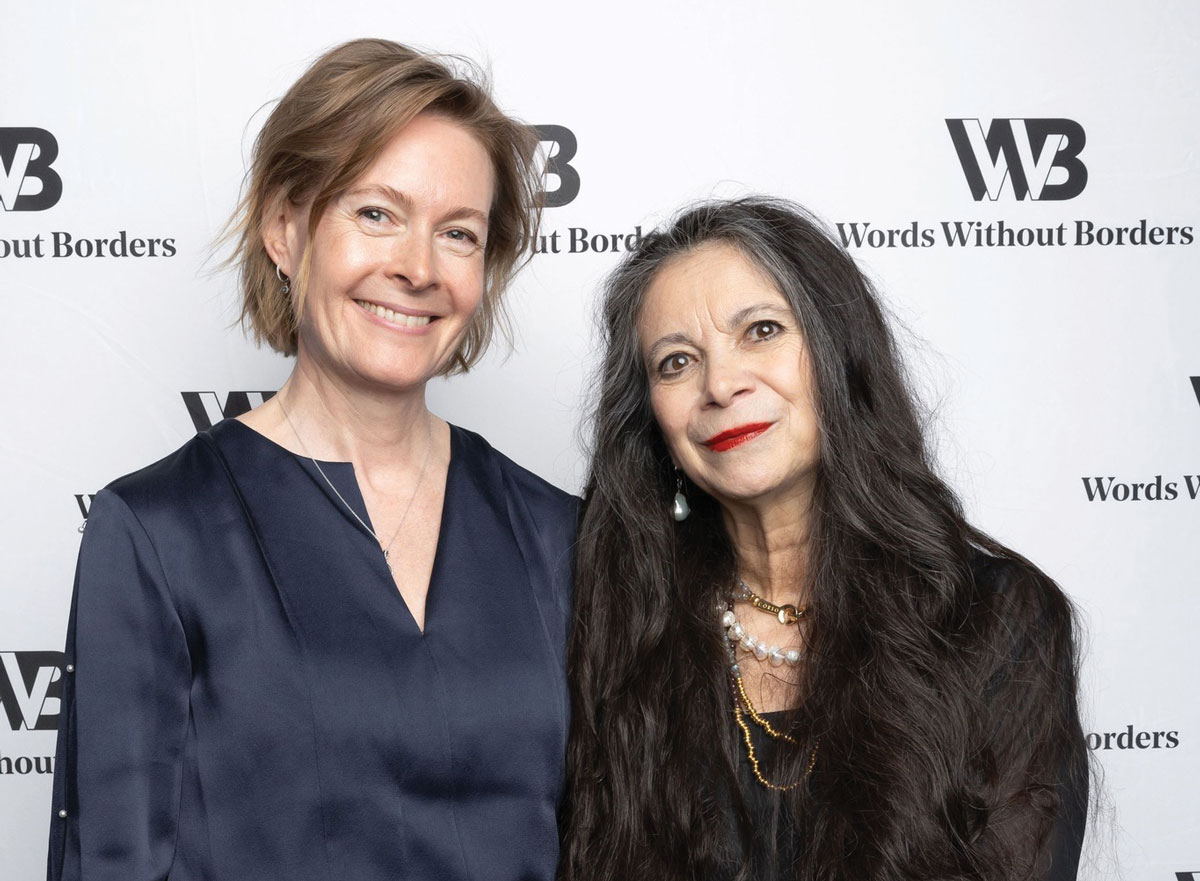Beyond Words
“Traduttore, traditore” goes the Italian bromide: “The translator is a traitor.” But Samantha Schnee, who makes her living as a translator, insists those in her profession are among a writer’s greatest allies. “A poet or a novelist can never have a closer reader,” she says. “Translators have to actively consider every word.”
More than 20 years ago, Schnee cofounded Words Without Borders (WWB), an online journal that publishes literature translated into English from almost every part of the globe. The journal has published 4,600 writers—including seven who later won the Nobel Prize—in translations into English from 139 different languages. Today, 11 staffers operate the publication with an annual budget of just under $1 million, funded primarily through grants and donations.
WWB builds bridges between writers and readers across languages and cultures, providing English-language readers access to lesser-known works and opportunities for translators. It draws an estimated 750,000 readers annually, half of whom live outside the United States. “It’s a handbook for understanding the world,” says Iranian American author Reza Aslan, who edited WWB’s 2011 anthology of Middle Eastern translations.
In addition to pieces for WWB, Schnee has translated several books by Mexican authors—Goddesses of Water, a collection of poems by Jeannette Clariond, and two novels by Carmen Boullosa, The Book of Anna and Texas: The Great Theft, which was shortlisted for an American translation prize. Schnee won a 2024 Berlin Prize Fellowship, which will allow her to be in residence this spring at the American Academy in Berlin to work on a translation of Winter Lights, a recent novel by Basque author Irati Elorrieta.
Schnee learned about the project that would be become WWB when she heard W. W. Norton editor Alane Salierno Mason propose the idea at a 2002 meeting of the organization PEN America. “I ran up to her as soon as she finished speaking and told her that editing WWB was my dream job—it synthesized my interests in literature, language, and culture,” Schnee recalls. She started the following month, and the journal launched in mid-2003.
U.S. publishing companies have been slow to pay attention to international literature. A watershed moment arrived with the 1970 translation of Gabriel García Márquez’s One Hundred Years of Solitude by Gregory Rabassa ’44. “It got Americans to open up to reading contemporary translated literature,” Schnee says. Still, opportunities for translators of literature remain limited. “There are a few who have translated Nobel laureates who can kind of cobble together a living.” WWB attempts to fill the gap.
In its early days, WWB attracted Susan Barba ’97, a senior editor at The New York Review of Books. “I was in graduate school, working on a dissertation but also writing poetry and trying my hand at translation,” she says. “I sent Samantha some poems I’d translated by the Armenian poet Siamanto, and to my surprise they were accepted for publication. To see these poems in a new exciting online literary journal was a wonderful validation of my more literary aspirations.”
Many of Carmen Boullosa’s stories and poems have appeared in Schnee’s publication. “As an author, as a reader, as a person who works in New York City and speaks, dreams, and writes in Spanish—Mexican Spanish—I am grateful for the work WWB has done, which has nurtured my life,” she says. “More important is how it counters the centrism of the United States in worldwide literature. This is a global problem, and translation plays a role in confronting self-centrism, the phobia of the ‘other,’ which is one of the maladies of our century. The United States has that problem, and it is best to fight it at its core, its literary core.”
WWB provides a needed counterflow, according to Schnee. “It brings things that we’re not likely to hear or read about outside of the English-dominated global conversation and makes them accessible for people who might not have a second language outside English,” she says.
Translating literature is a complex and exacting art. Were it a question of simply matching up words in one language to counterparts in another, bots could do the job. And they do, thanks to technology innovations. But what about idioms? By definition, a direct translation of an idiom leaves the reader bereft of the real meaning.
“A language is specific to the culture it arises from,” says Schnee. “You can’t always replace like for like, but you can translate the spirit of a poem or story or novel.” A phrase from a Boullosa novel that Schnee is translating illustrates the tightrope translators often traverse. In the novel, dead poets from the past gather for a conference, and Dante sees a television for the first time, which is showing a Britney Spears video. “The narrator describes the video as ‘un rosario de refritos mal refritados,’ which literally means ‘a rosary of badly refried refrieds,’ which makes no sense in English,” Schnee says. “I translated the phrase as ‘a string of half-baked clichés,’ which loses some of the Mexican-ness of the description—the rosary reference would be known to some English language readers but not to a majority—yet retains a culinary reference. Ultimately this phrase must make sense as a description of the Spears video to make sense in context.”
Translation requires multiple skill sets, according to Allison Markin Powell ’95, who has translated Japanese literature for WWB. “You need to be able to write well in the language you’re translating into, and you need to understand the culture that is embedded in that language,” she says. “It’s what’s on the page, but it’s also what isn’t on the page. I would say translation is a form of writing, full stop.”
“I think of translators as cultural ambassadors,” says Schnee.
Schnee originally intended to study medicine. Born in Scotland, she moved with her parents to Houston when her father, a surgeon, took a job at the Texas Heart Institute. After high school, Schnee’s parents, who both attended college for free in Scotland, balked at paying for an undergraduate education. Her father finally agreed, but with one condition: Samantha had to learn German.
Pleased but slightly mystified, she agreed and signed up for a battery of premed courses in her first year. That summer she observed her father as he operated on a patient. “I saw him make an incision in a leg, and blood splattered onto his scrubs. The next thing I remember, I was lying on a stretcher outside the operating room, and my dad was looking down at me, wondering what had just happened,” she recalls. “I told him, ‘I don’t think I’m going to be a doctor.’ ” Schnee majored in English. She met her future husband, J. Michael Hafner ’89, on campus, and one of their three sons attended Dartmouth.
“I think of translators as cultural ambassadors,” says Schnee. “From the beginning of time, we have helped people from different cultures begin to understand each other. My hope for translation and for Words Without Borders is that as time goes on there will be even more cross-pollination, using literature as a way to explore the world and get closer to the experience of someone we might never meet.”
Chris Quirk is a freelance writer who lives in New York and Vermont.












